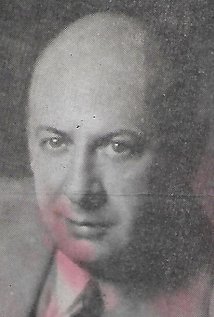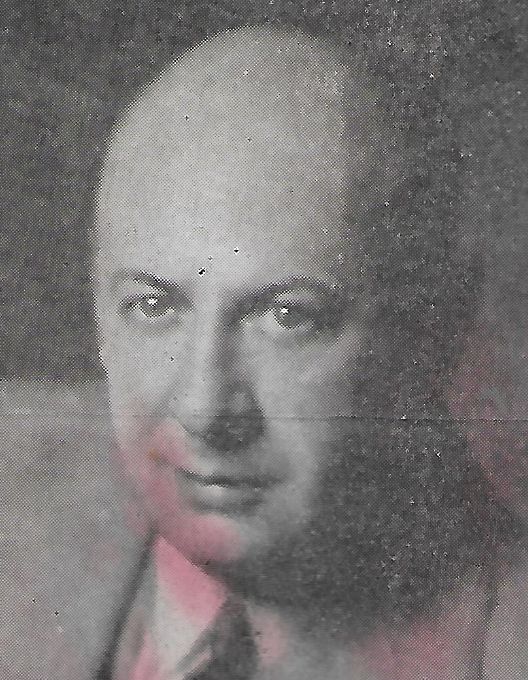Marc Connelly, the Pulitzer Prize-winning playwright, is best known as being one of the leading wits of the Algonquin Round Table and for being a collaborator with George S. Kaufman, with whom he wrote many plays, including Merton of the Movies (1947). His Broadway career spanned 65 years, from 1915, when he got his first writing credit on a Broadw...
Show more »
Marc Connelly, the Pulitzer Prize-winning playwright, is best known as being one of the leading wits of the Algonquin Round Table and for being a collaborator with George S. Kaufman, with whom he wrote many plays, including Merton of the Movies (1947). His Broadway career spanned 65 years, from 1915, when he got his first writing credit on a Broadway play for contributing lyrics to that year's edition of the musical revue "Hip! Hip! Hooray!", until the year of his death, 1980. His last play, "The Stitch in Time", started previews on December 29, 1980. (The play, alas, never officially opened.)He was born ninety years earlier, on December 13, 1890 in McKeesport, Pennsylvania, the son of actors Patrick Joseph Connelly and Mabel Louise Cook, who also ran a hotel. He began writing plays as a youngster, and after serving as a cub reporter for the "Pittsburgh Sun-Telegraph", he moved to New York City to seek his fame and fortune. In The Big Apple, he wrote the book for the 1916 musical-comedy "The Amber Empress", a flop that closed after 15 performances. He provided lyrics for the 1918 musical "The Maid of the Mountains", which did a little bit better, closing after 37 curtain calls.He became a member of the Algonquin Round Table in the year after the Great War ended. Two years later, in 1921, he and fellow Round Table habitué Kauffman scored a success with their first collaboration, the comedy "Dulcy", which ran for 241 performances. Other collaborations followed. They had three productions in 1922, the original comedy "To the Ladies", the musical revue "The '49ers", and "Merton of the Movies", the latter of which proved a hit, running for 392 performances.The more modestly successful musical comedy "Helen of Troy, New York" followed in 1923, a year that also saw their comedy "The Deep Tangled Wildwood" flop, closing after just 16 performances. They came back in early 1924 with the comedy "Beggar on Horseback", which was a hit (and which was briefly revived in 1925), but their other offering of 1924, the musical comedy "Be Yourself", was not a success.Their partnership broke up, and in 1926, Connelly scored a modest hit with his original comedy "The Wisdom Tooth", which ran for 160 performances. His next play, the comedy "The Wild Man of Borneo" written in collaboration with Herman J. Mankiewicz (who would go on to win an Oscar writing the original screenplay for Citizen Kane (1941) with Orson Welles) was a flop, closing after 15 performances. But his next venture on The Great White Way, the Old Testament-inspired musical play "The Green Pastures", was his biggest hit yet. Not only did "The Green Pastures" run for 640 performances, it brought Connelly the Pulitzer Prize for Drama.He did not have another play on the boards until 1934's "The Farmer Takes a Wife", which closed after 104 showings. His 1937 comedy "Having Wonderful Time" was a hit, the last of his career, with 372 performances. Though he would write three more original plays between 1942 and 1948, none of them was success. His last, posthumous show, which made it to Broadway 32 years after his last original, didn't even merit an opening.In addition to writing, Connelly also produced, directed and acted on Broadway, and he also acted on the screen and in TV. He co-directed the 1936 cinema adaptation of his The Green Pastures (1936) and worked as a screenwriter for the movies and television, scoring an Oscar nod for Captains Courageous (1937) and an Emmy nomination for the 1951 "Hallmark Hall of Fame" adaptation of his "The Green Pastures".Connelly's memoir, "Voices Offstage", was published in 1968. He died on December 21, 1980, eight days before his last play, "The Stich in Time", went into previews (one of the reasons it likely didn't open as the 90 year old playwright wasn't around to make revisions).
Show less «




